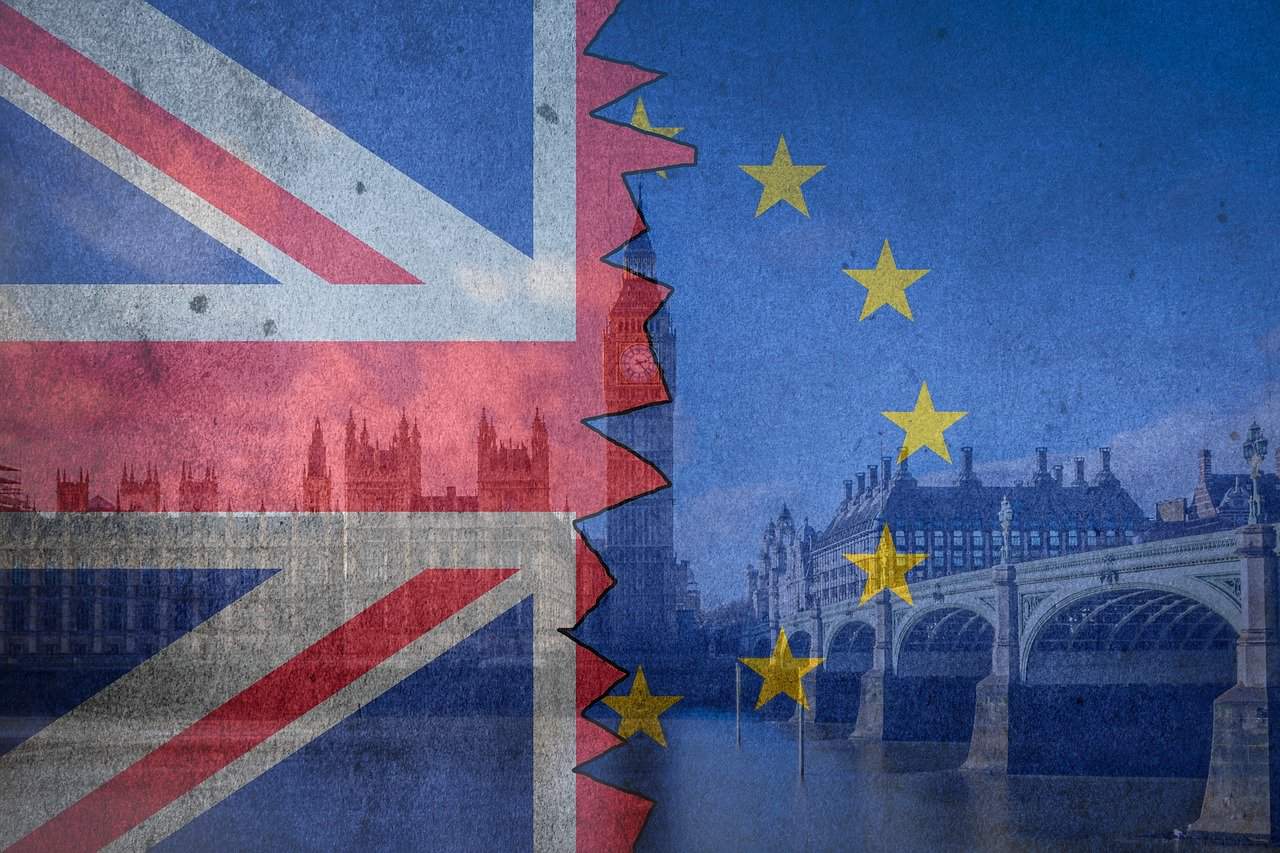
by Dr Andrew Blick
Reader in Politics and Contemporary History at King’s College London; Senior Research Fellow at the Federal Trust
27th April 2020
In the space of a few weeks, many central assumptions of UK politics have shifted. This movement of plates is in large part attributable to the Coronavirus episode, but not wholly. I will return to the consequences of the pandemic later. The most obvious dramatic change that is not a consequence of this global emergency is the election of Sir Keir Starmer as leader of the Labour Party. In any circumstances, Starmer was surely the candidate that the Conservative Party least wanted to see win the contest. His success – and the considerable shift in the balance of power within Labour it both signifies and facilitates – has gone some way to restoring the impression of a credible opposition able to challenge and expose the government – and perhaps begin to present itself as a potential government itself.
Coronavirus has helped create an environment that could prove supportive to such a revival. It is plausible that aspects of the government response to the pandemic – and its handling of communications about its conduct – will lead to lasting damage to its political standing, even among those who are at present its supporters. Furthermore, the nature of the emergency means that public concern is focused on policy areas – such as the National Health Service – where Labour is relatively well-placed to present itself as competent. Unavoidably, furthermore, the pandemic will necessitate a sustained expansion in the absolute and relative size of the public sector of the economy, and measures to subordinate markets to social interest. It is true that under Johnson, notoriously light on ideological baggage, the Conservatives were tacking towards a populist approach to public expenditure that made them increasingly hard to distinguish from Labour under Corbyn in this regard. The fiscal commitments of both parties lacked credibility then. Large-scale interventionism, funded by deficits, carried with it the risk of loss of market confidence for the individual states choosing to carry it out (particularly in the case of a state that had recently left the largest economic bloc in the world, the EU). But we are now in a different global environment. Dirigisme is not a choice that one country might (perhaps rashly) make, but an unavoidable necessity for all. For investors who are uncomfortable with such practices in one territory, there will not be the option there was previously of moving into other markets that operate differently.
Furthermore, ideological resistance to such programmes is harder to sustain in the face of the overwhelming demands of the time. There will no doubt be arguments about how, precisely, government should exercise its new role. For instance: how far should it pursue socially egalitarian outcomes, and how swiftly and to what extent should it seek to retreat from the functions that circumstances have forced upon it? Is a restoration of normality as once understood desirable, or even possible? A range of views are possible on these issues. But the terms of debate will have shifted remarkably. It will surely be politically difficult for anyone to mount the case for another period of austerity; and the Conservatives might well be careful to distance themselves from such an approach. But a debate on this new basis is surely an improvement from the point of view of Labour. In this climate, moreover, it will be easier for Starmer to reconcile the views of his own party membership with the crafting of policies likely to be attractive to the wider electorate.
But just how effective Labour under Starmer proves to be will depend in large part on its ability to form and present a coherent European platform. Like Boris Johnson, Starmer owes his position to Brexit. His political reputation – and presumably to a significant extent his popularity among Labour members – was built on his performance in the Shadow Brexit brief. As well as appearing competent, he was clearly a source of internal pressure to move the party towards a position where it was willing to countenance reversing the decision to leave that followed the referendum. Eventually, ahead of the General Election of December 2019, he helped manoeuvre Labour into an admittedly contorted posture of support for a further referendum.
But during his leadership campaign this year Starmer expressed hopes of leaving behind what he called the ‘leave-remain divide’, saying: ‘I don’t think there’s really any question of rejoining the EU. We’ve just left the EU. The leave-remain debate is over. The divide is over and we need to let it go. All of us, whichever way we voted.’ This expectation was never realistic. The ‘leave-remain divide’ to which he referred is a deep lying political and social cleavage. People who hold power at UK level today do so because they identified and augmented this fissure, harnessing it to their own ambitions with little or no regard for the social, political and economic damage it might entail. It is in their perceived interest to maintain the ‘leave-remain divide’. For this reason alone, the closure to which Starmer referred is not possible.
While it secured a General Election victory promising to ‘Get Brexit Done’, the present government exists because of the trauma that has afflicted the country since June 2016, and needs to sustain it, even while maintaining the pretence of its being successfully resolved. Before the pandemic, the Johnson administration was set upon engineering a crisis, arising from the unrealistic deadline it imposed upon itself of terminating the post-Brexit transitional arrangements by the end of 2020. At the time of writing, in the context of Coronavirus and its consequences, the already slight chances of securing a meaningful Free Trade Agreement with the EU within this time frame have diminished further. To continue to insist on maintaining this timetable therefore makes a ‘no-deal’ scenario even more likely – one that will now involve, as before, the wilful manufacture of a likely economic disaster, in the new malign context of global downturn and health insecurity. Furthermore, the idea of there being bounty readily available elsewhere in the world to a UK released from the constraints of the EU will be harder to sustain. Whatever view one may take of the prospects for European economies or of the EU as an organisation, thriving trade relations with, for instance, the US or China are not a plausible proposition in at least the short to medium term. But to seek to apply rationality to the Brexit project is fundamentally to misunderstand it. This point is demonstrated by the apparent behaviour of the UK government with respect to the procurement of medical equipment, which suggests a high-level view that avoiding the perception of cooperation with the EU takes priority over public welfare.
In these circumstances, one European policy for which Labour under Starmer might feel tempted to opt seems to fit well with the expressed views of the Shadow Foreign Secretary, Lisa Nandy. Labour might press for an extension to the transition period. Then, if the UK government chose this option, during the additional one, two – or perhaps more – years available for negotiation Labour could press for a Free Trade Agreement that maximised regulatory alignment between the UK and EU, protecting employment rights, trade, and the ability of people to move between the EU and UK. Advocates of this approach would be likely to point to two main supposed benefits. First, the policy programme entailed could be a means of minimising the damage caused by Brexit, and retaining a close relationship with the EU. Second, supporters of this stance might argue, since it fell short of recommending a reversal of Brexit, it would offer the chance of regaining seats lost to the Conservatives at the 2019 General Election, for instance in the North of England, in which there were ‘leave’ majorities at the time of the 2016 referendum.
There are a number of problems with such reasoning. To begin with, it is far from guaranteed that Labour would be successful in pressurising the UK government either to extend the transition period or, having done so, negotiate the type of Free Trade Agreement it favours (if any such agreement is ever reached). At this point, would Labour then pledge, should it win the next election, to seek to open up negotiations with the EU again? If so, would this policy be genuinely appealing to the ‘leave’ supporters that Labour hoped to win over, or would it appear as a reopening of the Brexit issue by a party and leader that were ‘remain’ inclined?
It is, however, possible, that a Conservative government will ultimately decide that the prospects of either ‘no deal’ or an agreement that entails substantial dealignment from the EU are too unpleasant to countenance, and capitulates to the EU (as it has done at certain stages during the Brexit process already). At this point, the UK will have arrived at something resembling what used to be called a ‘soft Brexit’. Faced with the choice between two basic varieties of Brexit – damage maximising and damage limiting – it will have chosen the latter. It will have avoided some of the more damaging aspects of a harder Brexit. But it will have lost a number of advantages of membership (most obviously, the right to participate in decision-making), while retaining many of the responsibilities (including for some financial contributions and adhering to European law). If Labour adopts the approach described above, though not particularly appealing, this outcome is nonetheless the best case scenario for the UK. It would presumably entail Labour entering the next General Election trying to avoid addressing the issue of the EU, or perhaps proposing minor modifications in the UK approach towards it. Labour would probably find it very difficult at this point to switch to a policy of re-joining.
This effort to move on would be a continuation in different form of the failed strategy taken by supposed pro-Europeans in this country for a number of decades. Politicians of different parties who were supportive of continued UK membership of the EU (and its precursors) tended to avoid confronting the flaws of Euroscepticism directly. Instead, they conceded the basic premise that the EU was a problematic incursion but held that this undesirable tendency could be curbed, for instance by securing various opt-outs for the UK. This approach meant that the UK never engaged as fully with the EU as would have been desirable for both it and the EU. Moreover, the hope that domestic opposition to the EU could be neutralised by such means proved false: indeed, the opposite was the case. A Labour policy that favoured close alignment over re-joining would represent a continuation of similar logic. It would mean accepting, without good reason, a key premise of the opposing side in a debate – in this instance that being a member of the EU was excluded as an option – that would shape consequent political interactions around the subject. There are no obvious grounds for believing this variant on the humouring of Euroscepticism would prove any more successful than its predecessors have. It would once again concede ground to those hostile to Europe, and engage with them on their own terms.
Labour under Corbyn – whose past hostility to the European integration project was well-known – adopted a far from an enthusiastic stance regarding the EU, and never firmly opposed Brexit in the period following the referendum. It is reasonable to postulate that one of the reasons Starmer was elected leader rather than a Corbyn heir was precisely because he was known to be genuinely committed to EU membership. It would seem reasonable that his leadership would see a shift in this direction. An outline of a possible policy of this type, and the justifications for it follows.
If support for leaving the EU was a serious mistake on 23 June 2016, then it remains one now – even more so in the wake of Coronavirus. Furthermore, the second referendum for which Labour called, to enable the public to confirm or reverse the decision to leave, did not take place, further calling into question the validity of the process. At the General Election of 2019, well under half of voters supported parties that were clearly committed to Brexit – a policy previously deemed to require the support of a majority of voters in a referendum. It is in no way illegitimate, as some seem to suggest, for Labour to question a course of action arrived at on this basis (and it would continue to be acceptable even if there were demonstrably overwhelming support for Brexit). Furthermore, those who judge Brexit harmful have a duty to continue to openly disagree with it, rather than claiming to be reconciled with it (and probably convincing few in the process). To oppose Brexit necessarily means to support, at the soonest practicable point, the commencement of efforts to achieve renewed membership of the EU. There will be much detail, internal and external, requiring consideration. But the beginning of this process must come with a clear statement of principle that the UK should be a member of the EU. Labour is the party that can provide that statement.
Some will hold that this policy would be demeaning to ‘leave’ voters, including among them electors to whom Labour needs to appeal in constituencies lost to the Conservative Party. It will imply that these voters were somehow duped, that they are ignorant, or perhaps prejudiced. This argument is curious. At every General Election, one of the goals of parties is to persuade voters who supported a different party last time to switch their allegiance. In other words, they are implicitly telling those people that they made a mistake, that the basis on which they cast their vote previously was flawed, and that they need to change their minds this time. This is the precise approach that Labour will take – successfully or otherwise – at the next General Election, including in ‘leave’ constituencies it has lost to the Conservatives. It will seek to convey to them, for instance, that Boris Johnson has not delivered on the promises he made to tackle inequality. One might interpret this approach as insinuating that they have allowed themselves to be deceived; or one could regard it as seeking to persuade through rational argument. In any case, it is not clear why this form of political campaigning – in which Labour, along with other parties, will inevitably engage – is any less disrespectful to voters than disagreeing with Brexit.
Labour would be ill-advised to fixate on the idea of rebuilding the so-called red wall of former safe Labour constituencies – a task that acceptance of Brexit might well not accomplish anyway. To do so would lead it to neglecting other potential or actual sources of support. Its existing voters were overwhelmingly of a ‘remain’ orientation, and no doubt continue to be so. Even if Labour can make gains among ‘leave’ voters, it might alienate others of the opposite view at the same time. There are others – perhaps alienated by the Johnson-era Conservative Party, or who voted Green or Liberal Democrat at the last General Election – to whom Labour could appeal by a firm advocacy of EU membership. Furthermore, Scotland clearly voted ‘remain’. Recent shifts in the political landscape, both connected to the pandemic and arising from other developments, might point to a difficult period ahead for the Scottish National Party. A revival in Labour fortunes is far from certain in Scotland, but the same could be said of pro-Brexit parts of England. It would seem preferable to base a strategy of recovery around policies for which the party had a natural affinity, rather than second-guessing the attitudes of voters with whom it was in fundamental disagreement. It could well be that circumstance and logic will force Labour towards support for re-joining the EU anyway, in which case nothing will have been gained by delaying this transition. The UK will never simply move beyond the European question, since it is intrinsic to it as a state. Brexit cannot be done, but it can be reversed. Labour is the party that can achieve this outcome, to the benefit of the UK and of itself.





